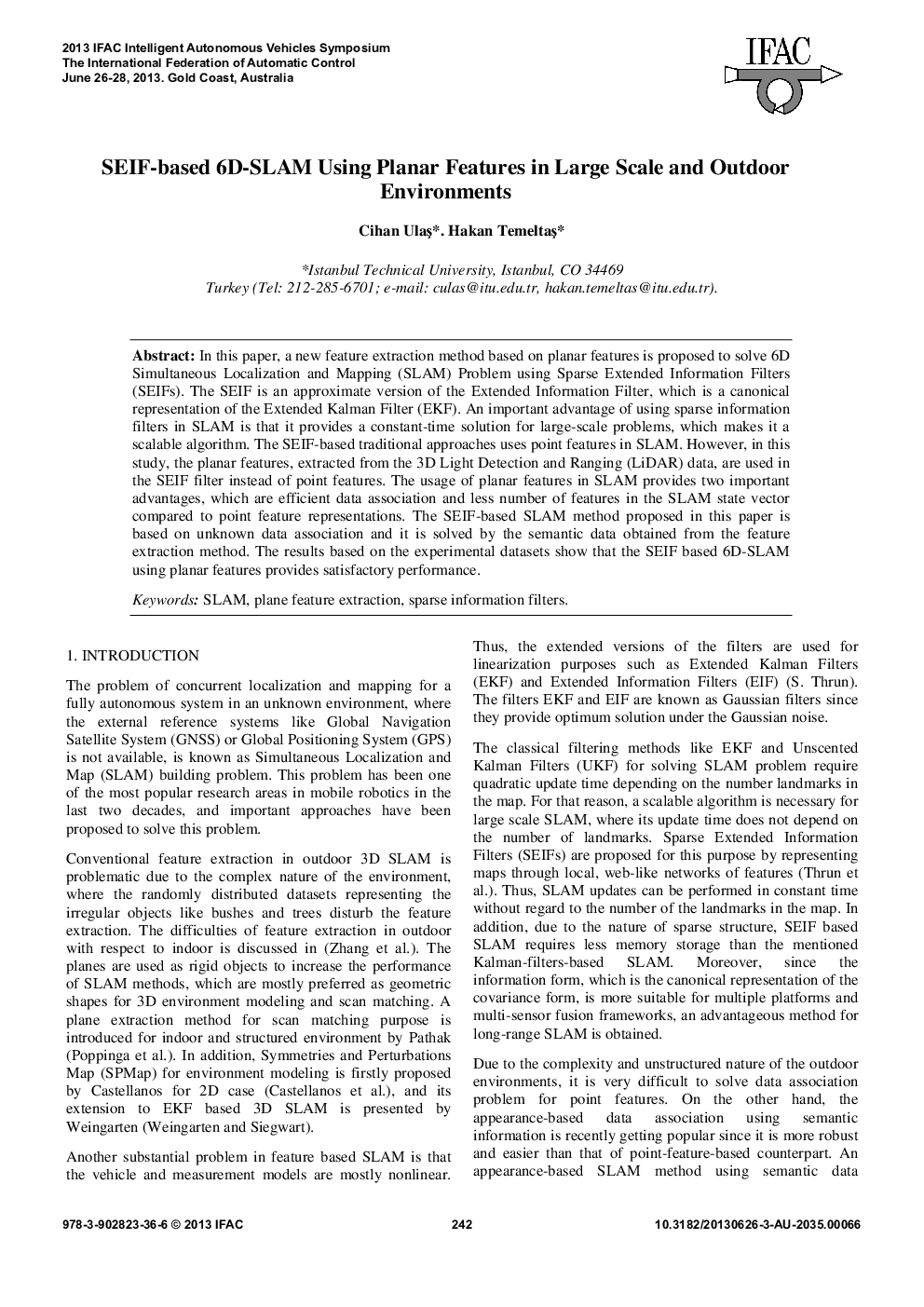| Article ID | Journal | Published Year | Pages | File Type |
|---|---|---|---|---|
| 716340 | IFAC Proceedings Volumes | 2013 | 6 Pages |
In this paper, a new feature extraction method based on planar features is proposed to solve 6D Simultaneous Localization and Mapping (SLAM) Problem using Sparse Extended Information Filters (SEIFs). The SEIF is an approximate version of the Extended Information Filter, which is a canonical representation of the Extended Kalman Filter (EKF). An important advantage of using sparse information filters in SLAM is that it provides a constant-time solution for large-scale problems, which makes it a scalable algorithm. The SEIF-based traditional approaches uses point features in SLAM. However, in this study, the planar features, extracted from the 3D Light Detection and Ranging (LiDAR) data, are used in the SEIF filter instead of point features. The usage of planar features in SLAM provides two important advantages, which are efficient data association and less number of features in the SLAM state vector compared to point feature representations. The SEIF-based SLAM method proposed in this paper is based on unknown data association and it is solved by the semantic data obtained from the feature extraction method. The results based on the experimental datasets show that the SEIF based 6D-SLAM using planar features provides satisfactory performance.
